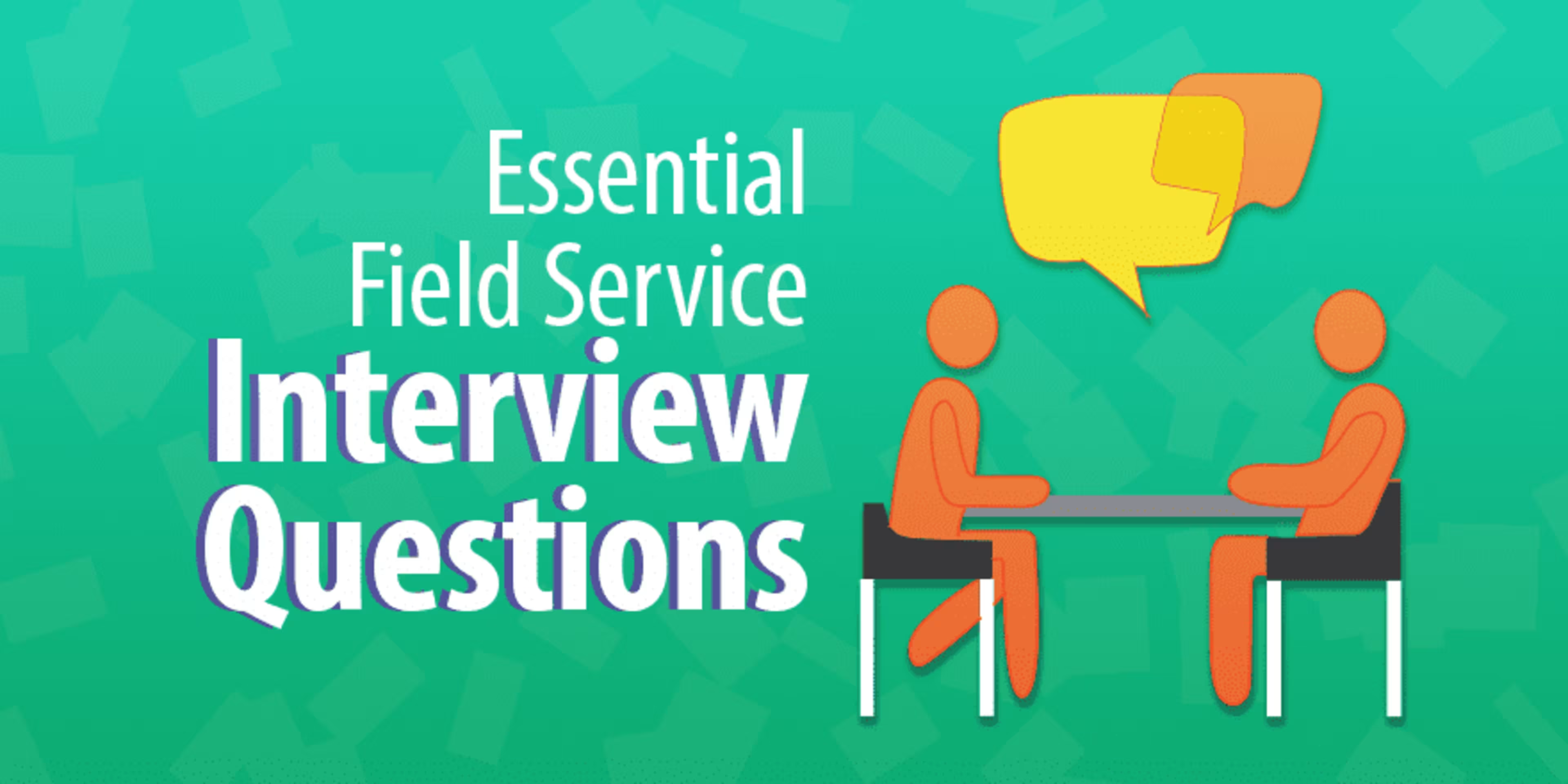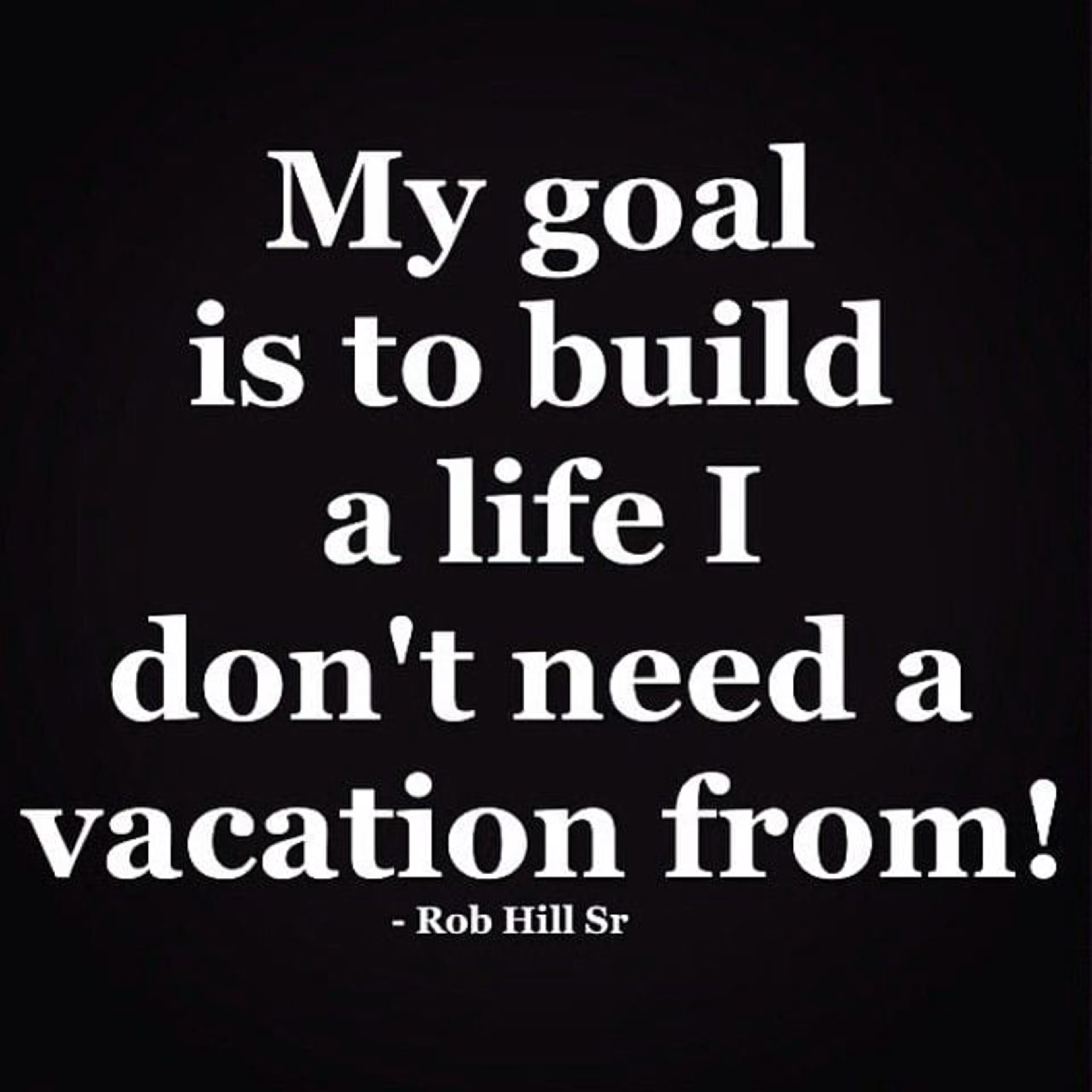There's no process more painfully ironic than the job hunt.
It doesn't bring in any money, but it works you like a dog.

You're looking for the routine and regularity of a steady job, but the hunt is unpredictable and chaotic.
Most ironic? You'll spend a lot of time alone, but the final step to get that position involves that dreaded one-on-one personal interaction: the job interview.
There are many activities preferable to job hunting, like taunting a World's Strongest Man competitor, or a run-with-raw-steak 5k through a petting zoo for weight-conscious carnivores on diets. That's why I've searched the Internet to find the top five field service job interview questions. If you want a position as a field service technician, these questions can help you prepare. The better prepared you are, the better your chances are at landing the actual position, and ending the job hunt.
Question 1: Why do you want to work for this field service company?
It doesn't matter if you're so desperate you'd be the janitor in a Bond villain's volcano hideout. When you go to that job interview, you're as interested in them as you are in a potential significant other, or (priorities, people) the new Game of Thrones trailer.
To get this way, do your homework first. Don't just Google the company, Google them and Google News search them. What kind of imprint, if any, do they make in the news? What is known about them? Is this the company that, say, once did plumbing for the White House? Check their website, too, of course. How do they talk about themselves? What's their mission? If you're hired, it'll become your mission, too, so it's worth knowing.
I wouldn't recommend going quite as far as the following clip, but it at least points you in the right direction:
Every company has its own culture. Part of your research in job hunting should be to check out what company culture is like, and decide if it fits you. Maybe they're laid back. Maybe they're high-strung. Either way, know how they work. If it's a style that fits you, be ready to show off to your employer that 1) you know that style, and 2) you'll fit in like you've been there for years.
Bottom line to all this? Follow the Boy Scout motto and be prepared, especially since about half of interviewers say they already know whether a candidate's a good fit within the first five minutes of a job interview.
One more note: even if you really need the work, don't look for a company where you won't be happy. Make cultural fit part of your research. That may seem frivolous, especially for someone not pulling in any money, but it can be the difference between excelling and hating every day. If you're miserable, your performance will suffer, and the odds that you won't be in the position that long. Jen Anesi at ACHR News said it best: be honest! Don't tell an interviewer what they want to hear; instead, try "playing up your strengths and your willingness to learn."
Question 2: Who's your ideal service industry boss?
Odds are good that some form of boss question will come up. It might be "who's your ideal boss," or it might appear as "what kind of boss do you want to work for," or "who's been your favorite boss in the past," or "who's the worst boss imaginable?" Whatever form it takes, be ready to talk about the sort of motivation that works for you.

(If you answer "Springsteen," you'll probably be told to leave.)
To nail this question, you'll need to know yourself, too. What inspires you? What sort of supervisors have made you want to not just work, but excel?
If you're prepping for a job interview, think up two or three potential answers to this question. Take 10-15 minutes to think about your past supervisors, and which ones have really inspired you. Were there any similarities? Was it the way they handled the people, or the technical know-how? As you think it over, you may realize some valuable things about yourself.
If you've never had an ideal boss, focus on that word: "ideal." What would they look like, if you could design one in your head? Though you may not find that person in real life, thinking over the sort of person who would inspire you will still help you prepare an answer. And, if you're lucky, you might find that the person interviewing you seems to meet that ideal. If you do, however, don't invite your interviewer to dinner afterwards.
Question 3: How do you handle demanding customers?
A field service job isn't just fixing, installing, or rewiring. It's also customer service, and sometimes, those customers may require as much knowledge and finesse as the trickiest piece of machinery. How do you meet the needs of customers who always want something more? Be ready with examples of how you have, or could, satisfy even the crankiest of customers.
In addition to talking about demanding customers, be prepared to talk about disgruntled customers. You're going to come across customers who refuse to be happy, no matter what you do. Interviewers know this (they've probably seen their share). They'll want you to talk about how you respond to difficult customers with the sort of attitude that can win them over.
"Attitude is huge in figuring out how employees will deal with disgruntled customers," says Wes Rockhold of Acme Home Elevator. "When interviewing a potential employee, I take cues from his body language and what he says to judge his attitude"
To determine how well someone can handle the unexpected or unpleasant, Rockhold throws in an extra step:
"I'll ask a guy about tell me the last time you had a difficult customer, and when he answers, I'll stop him part way through and say 'this pen is blue, tell me everything about the color blue.' And I'll see how he reacts. If he can think on his feet, it's a good sign. If you've got a pleasant technician with a good attitude, the customer is more likely to be happy with the service, so seeing how he reacts to being flustered is huge."
Rockhold says the test has been a good way to gauge technician responses to challenges in the field. In one case, he says, he had an interviewee who "didn't even skip a beat, just went off on how important the color blue was to his family." Rockhold was impressed enough by the man's answer to offer him the job.
If you can react to something that unexpected in an interview, unusually cranky customers (say, someone who demands a 30-minute job be done in five) will be much more manageable.
Question 4: What would a major accomplishment look like?
You may see other versions of this question, like "what's your biggest accomplishment," or "imagine yourself at the end of one year with this company: what have you accomplished?" This question is a way for the interviewer to suss out your expectations of yourself. This question also indirectly taps into the "where do you see yourself in one/five/ten years" question, given the attention it pays to future performance.
This is something you've probably already got in mind. Chances are that you know what you want to accomplish, whether that's getting to a manager position, or attaining a certain first-time fix rate, or a certain level of customer satisfaction. If you can give your interviewer a concise idea of your ambitions, it will help them decide if you're a good match for the company, and also what you see as possible.

[Caption: This would be a good accomplishment on a meta-level.]
If you don't have anything in mind, view this question as an opportunity. Like Beth Colley said over at Job-hunt.org, "developing your answer to this question can help you get more purposeful about the direction of your career." Not to mention, it's just good for the gray matter: forcing yourself to think realistically about what you can do in five years is a beneficial mental exercise.
Question 5: How comfortable are you being on the road?
This question asks how much field you're willing to put into field service. There are other automotive-related variants of this question, like "do you have a valid driver's license," "how are you with travelling frequently," "do you mind travelling," and "are you OK with travelling a lot of the time." Bottom line? You'll be out and about as a field service technician.
The travel time question can also be a way of measuring other desirable traits. For Wes Rockhold, this question's answer indicates if candidates "know what it is to be an independent field service guy." Rockhold approaches the question indirectly: "I'll ask them how they feel about working by themselves. If a guy says they're fine with that, I'll ask what they think that means, and let them explain it in their own terms."
If the candidate is able to extrapolate that necessary travel time from that, it's usually a good sign, Rockhold says.
Field Service Interview Questions You've Heard?
In addition to the five above, what field service interview questions have you heard (or asked) in your career? Are there any major ones I've missed? Any answer gaffes you've encountered? If so, let me know in the comments below. The more information you pass along, the better everyone's chances are of finding the right position for them!
And if you're job hunting, here are three articles that may help you determine what position would be right for you:
Interested in learning more about field service? Check out The Top 5 Field Service Podcasts.